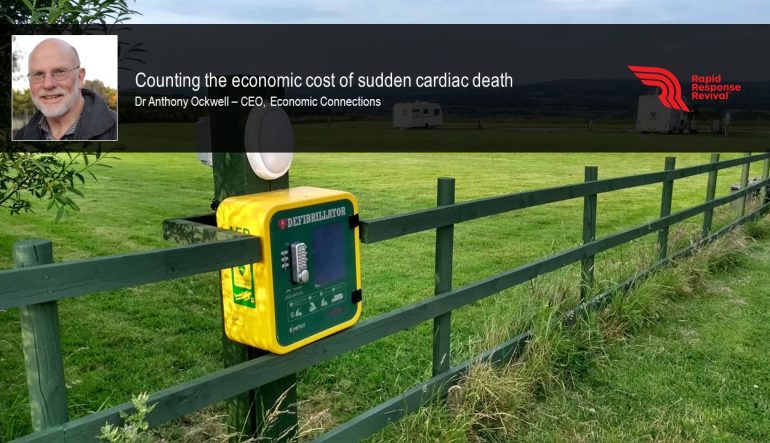Counting the economic cost of sudden cardiac death
When the original Yellow Wiggle and cardiac arrest survivor, Greg Page approached Dr Anthony Ockwell to calculate the economic cost of sudden cardiac death in Australia, he jumped at the opportunity.
Dr Ockwell lost his father to sudden cardiac arrest. At the age of 51, Ockwell senior collapsed on a beach; by the time assistance arrived, he was beyond help.
An economist, Dr Ockwell is well-known internationally for his work modelling the economic cost of road traffic fatalities and injuries. Could he, asked Greg Page, apply that model to determining the impact of sudden cardiac death?
Dr Ockwell and his team at Economic Connections donated their time, expertise and modelling pro bono to find the answer to Greg’s question. What they discovered shocked even them.
Subsequent recommendations on how the cost of sudden cardiac death could be reduced, calculated how many lives could be saved if public access to defibrillation were improved.
Looking at the number of sudden cardiac deaths averted by bystander use of public access AEDs in Victoria over the data period, Dr Ockwell determined how many more lives could be saved, and the subsequent economic impact, by improving AED access for bystanders.
In this full-length recording of his recent conversation with Rapid Response Revival, Dr Ockwell explains how they set out to determine the economic cost of lives prematurely lost to cardiac arrest in Australia; their findings; and what they think should happen next.
An abridged transcript of this conversation can be found here.
RELATED ARTICLE: CPR and defibrillation saves lives



